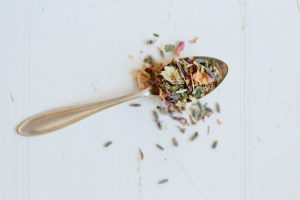The Naturopathic Co.

You're using an outdated browser. Please upgrade your browser to improve your experience.
Zinc is one of the most abundant and important trace elements in the body. It is required for many biological functions, including reproduction, growth, and immune function. It plays numerous roles in multiple complex biological processes, such as wound healing, relief from the common cold, and supports antioxidant systems. Zinc is also importantly an essential nutrient for normal brain development and function.
Deficiency of zinc is on the rise with an estimated 50% of the global population at risk (Chellan 2015), and deficiency in this important mineral also impairs the way the body interacts with other key nutrients, for example it blocks essential phospholipid pathways and interferes with the function of B vitamins.
As infants and children undergo major developmental changes and they also naturally encounter more infections compared with adults, it is vital they are adequately supported by correct nutrition intake.
This is particularly relevant with zinc as it’s involved in so many key biological growth processes, with inadequate intake resulting in impairment of physical growth, mental development and immune function, as well as increased risk of chronic diseases later in life (Maggini 2010).
A compromised immune system; recurrent infections of any kind, recurrent colds/flus, cold sores, constant runny nose, skin concerns such as eczema or dermatitis, poor slow wound healing
Tactile sensory issues, for example children who become agitated by tags on shirts, certain fabrics, shoes aren’t tight enough, or sensitivities to touch.
Auditory sensory issues (some sounds are too loud, blender, vacuuming, loud public places) child often puts hands over ears.
Nail biting
Symptoms of OCD
Fussy or pickiness when eating, or poor apetite.
Slowness to learn, learning difficulties, reading difficulties
Acne
Stretch marks
Highly irritable or regular low moods
Allergies
Perifollicular hyperkeratosis (small bumps on the skin, often on the back of arms)
Hair loss, dandruff, course or brittle hair
White spots on nails, soft nails, corrugated nails
Slower than expected growth
Diarrhea, poor absorption of nutrients (gut issues or damaged gastrointestinal tract), life stage, poor diet, stress, chronic illness, less zinc in the soil where produce is grown, under-performing immune system/recurrent illness or infections, high intake of soy based milks, phytates from high grain diets binds to zinc and other key nutrients so they are not absorbed.
Beef, capsicum, egg yolks, ginger, liver, lamb, oysters (very high), sunflower and pumpkin seeds (pepitas), seafood (crab/lobster), mushrooms, sea vegetables, dark chocolate, chicken, peanuts, spinach, legumes (chickpeas), kefir, cashews.
You can blend down some pumpkin or sunflower seeds and add them to many different foods without them being noticed. Add eggs to stir fries, add dried sea vegetables to salads, soups, and even meat dishes without them being noticed by children.
Although many children are either deficient or insufficient in zinc, it’s imperative you seek professional advice and have levels checked before commencing supplementation.
The good news is, the younger a child is repleted, the more rapid is the improvement. Therefore it’s particularly important for children with signs or symptoms of zinc deficiency or any other treatable nutritional deficiencies to be diagnosed.
If your child has a number of signs of zinc deficiency or you suspect they may be deficient, then please see a practitioner.
Yvette is a qualified Melbourne-based Naturopath and Nutritionist, MINDD Practitioner, member of the Naturopaths and Herbalists Association of Australia, and Complementary Medicine Association. Yvette specialises in the treatment of conditions commonly affecting women and children, with a key interest in children’s digestive and neurological conditions, as well as women’s hormonal concerns, digestive issues, fatigue, anxiety, and skin concerns. Yvette consults in South Yarra, Melbourne, as well as Australia-wide via skype/zoom/phone.
References
https://www.thelancet.com/journals/lancet/article/PIIS0140-6736(04)16671-3/fulltext
https://www.ncbi.nlm.nih.gov/pmc/articles/PMC3649098/
https://www.ncbi.nlm.nih.gov/pubmed/25666066
http://journals.sagepub.com/doi/pdf/10.1177/147323001003800203
The Naturopathic Co. Melbourne Naturopath 2020
Comments are closed.